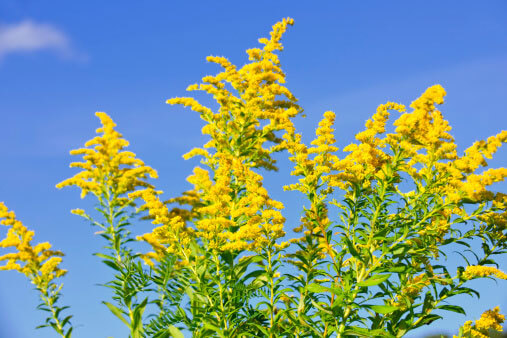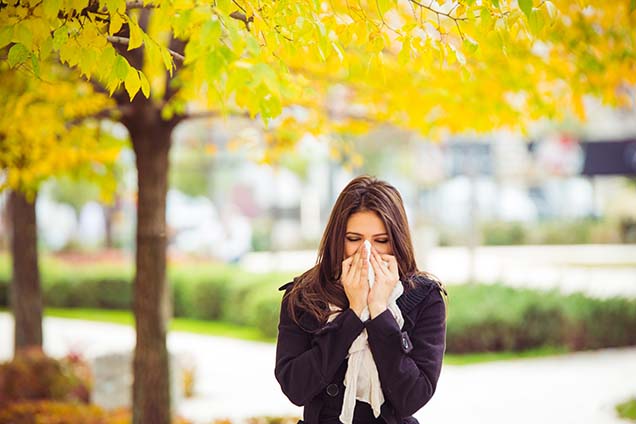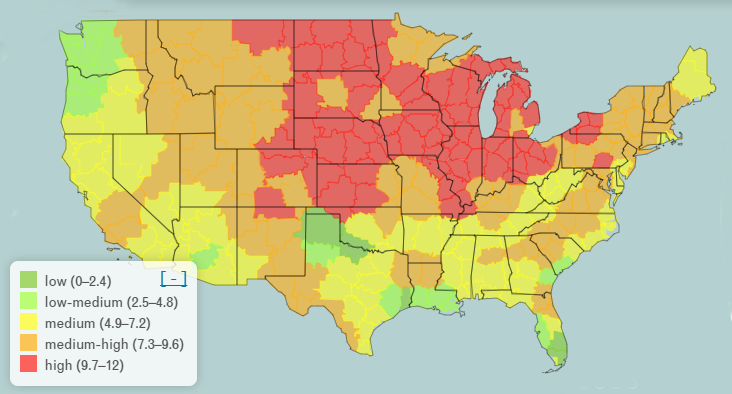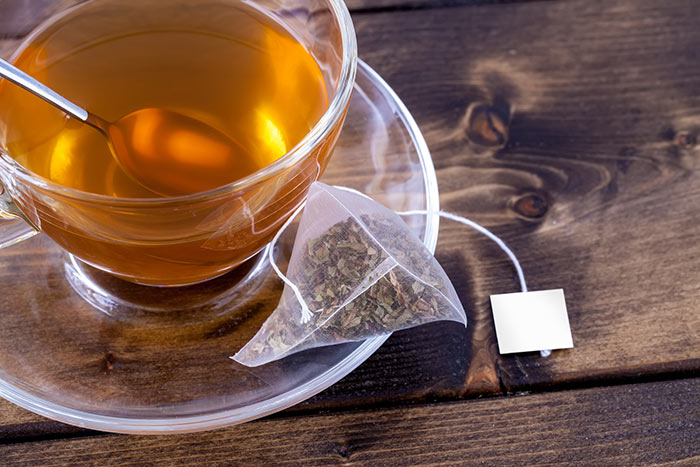Most people think allergies occur only during the spring, but the truth is, fall allergies can be just as brutal. Allergies occur when the body's immune system sees a substance as harmful and overreacts to it, leaving you with painful and frustrating symptoms that are often difficult to manage.
When the weather cools down and allergies flare up, know what symptoms to expect, medications and natural remedies to try and where your local CareNow® is located if symptoms get out of hand.
Common fall allergens
Although the triggers are different, fall can be just as problematic for allergy sufferers as spring or summer. While tree pollen dominates during the spring and grass pollen during the summer, fall has three allergy culprits that can be particularly troublesome, with ragweed being the most significant.

Ragweed
It’s physically impossible to fully avoid exposure to ragweed. Why? One ragweed plant can produce over one billion particles of pollen. From August to October, ragweed’s pollen travels with the wind for hundreds of miles, affecting those who don’t even live near the plant. It’s known for acting as a catalyst of “Hay Fever” (allergic rhinitis), so be sure to carefully monitor your symptoms.
Mold
Unlike pollen, mold doesn’t die with the first frost. Instead, it lays dormant in damp indoor and outdoor environments until summer returns. It’s likely to be found in leaf piles, rotten logs, basements and bathrooms. Symptoms of mold allergies are similar to that of other allergies and include a runny nose, congestion and itchy, watery eyes.
Dust Mites
Dust mites are very common indoor allergens that live easily in warm, humid places. One favorite spot for a dust mite to hide and multiply during the summer months is in heating ducts. So, before you turn up the heat this fall, do a thorough cleaning to avoid launching microscopic dust mites into the air.
Allergy symptoms
Season changes aren’t welcomed by everyone! For many, it’s the start of itchy eyes, sneezing and major congestion. You could live most of your life without realizing you have allergies to certain pollen, dander, dust mites or mold until you’re exposed to it. If you’re exposed to an allergen for the first time, you may confuse your allergy symptoms for a sinus infection. 
If you are experiencing fall allergies, you will likely suffer from one or more of the following symptoms:
- Runny nose
- Watery eyes
- Sneezing
- Coughing
- Itchy eyes and nose
- Dark circles under the eyes
Preventative care
There’s no cure for allergies to ragweed, dust or mold, but there are several techniques to reduce discomfort. One of the most effective ways to fight back is to avoid the outdoors. Pollen counts are highest usually between 10:00 a.m. and 4:00 p.m., but different days have different pollen counts. For 2017, the national allergy map for this season looks like this:

More information on local pollen counts. Along with staying indoors, you should also:
- Keep your windows closed.
- Change old heating and air conditioning filters.
- Regularly deep clean and dust your home.
- Change and wash clothes after exposing them to the outdoors.
- Bathe or shower before bedtime instead of in the morning.
Allergy medication
There are several generic and branded options of over-the-counter allergy medication to choose from. Once you find one that works for you, it’s a good idea to take it each morning during peak season.

Managing your symptoms is key to surviving the season. While there’s no guarantee you won’t be affected by the allergens in the air, trying these medications will increase your chances of having a tissue-free day:
- Nasal steroid sprays will help reduce inflammation.
- Antihistamines can stop sneezing and itching.
- Immunotherapy (available in both allergy shots and oral tablets).
Natural remedies
If you’re looking for natural allergy solutions, try liquid remedies such as hot tea to ease symptom pain as well as help your body heal inflammation and a dreaded runny nose.

Certain spices and herbs commonly found in tea may actually serve as a remedy for your allergy symptoms. For those with light to mild allergies, some studies have shown that adding extra vitamins to your diet may provide a natural remedy to your problem. Decongestants help to relieve stuffiness and dry up the mucus in your nose. Ask your provider for recommendations and to instruct you on proper use.
Allergy testing
Are the efforts to combat your allergies not working? If they are chronically affecting your daily life, it’s time to see a specialist. You may be feeling the effects of something more serious.

Don’t let allergy symptoms get you down this fall. You can relax knowing a local CareNow Urgent Care center is here to help and provide allergy testing when needed. If your symptoms become severe or don’t improve, visit your nearest CareNow® urgent care clinic for diagnosis and treatment.
Did you know you don’t even have to wait for an appointment when you choose to visit a CareNow Urgent Care center? By using our Web Check-In®, you’ll avoid any wait time!
Find a CareNow® Urgent Care near you
Disclaimer: Patients’ health can vary. Always consult with a medical professional before taking medication, making health-related decisions or deciding if medical advice is right for you.